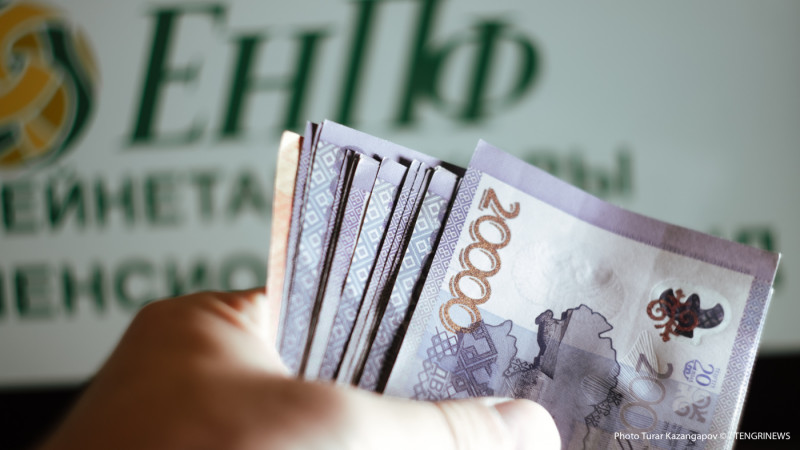According to analysts, with annual inflation of 17.7% in September and consumer price growth by 15.4% since the year beginning, the return of UAPF pension assets for depositors (recipients) amounted to 7.52% and 5.34%, respectively. Thus, the real yield over the past 12 months has been negative (-10.18%), and since the year beginning (-10.06%).
Income fluctuations
A similar situation arose in accrued investment return on pension savings as a result of significant fluctuations in 2022. Its value decreased by 1.8 times (to 305.3 billion tenge) in March, by 2.2 times (to 136.4 billion) - in April, after which there was an investment loss of 154.4 billion in May.
As a result, over the past spring, the loss of investment return of UAPF depositors amounted to 688.9 billion. This figure returned to the positive zone amounting to 352.3 billion in June.
There was an increase of almost one and a half times (up to 519.6 billion) in July and by more than a third (up to 718.2 billion) - in August. However, there was a significant slowdown in dynamics in September, and accrued investment return grew by only 3.3% (up to 742 billion), by 23.8 billion in absolute terms.
Besides, this result turned out to be much lower than the return received in January-September last year and 2020, when it was at the level of 1.1 trillion tenge.
Return on investment
A similar trend has developed in 2022 for net investment return, which is calculated as the difference between accrued income and paid commissions to the UAPF, National Bank and external managers.
As a result of spring losses, the value of this indicator became negative (-154.4 billion) by June 1, after which, the net loss was won back during the summer months and turned into net investment return of 694.7 billion by September 1. The September increase was only 3.2% (22.1 billion - up to 716.8 billion tenge).
We would also like to add that there was a significant decrease in the amount of pension savings accumulated in the UAPF in 2022; they dropped by 4.5% in March, by 0.3% - in April, by another 1.3% - in May (to 12 trillion 770.7 billion).
The positive dynamics of this index recovered in summer; there was a 4.8% increase in June, 2.1% - in July, 2.2% - in August (up to 13 trillion 970.6 billion). However, the pension savings increased by only 1% in September (up to 14 trillion 104.1 billion, by 133.5 billion in absolute terms).
What is in the future?
The immediate prospects for increasing the return on pension savings are so far not very optimistic.
From the UAPF data on the structure of accrued investment return received on pension assets held in trust by the National Bank for the nine months of 2022, it follows that a significant part of it still falls on income from foreign currency revaluation, that is, devaluation of the tenge against the dollar, 265.8 billion tenge (35.8% of the total accrued return on investment).
As of October 1, income in the form of interest on securities, including on placed deposits, reverse repo transactions and market revaluation of securities accounted for 532 billion tenge, while assets in external management suffered a loss of 67.2 billion tenge.
Besides, the National Bank continues to increase investment of pension savings in government debt by buying government securities of the Ministry of Finance, the volume of which in the UAPF portfolio has grown by 26.9% since the beginning of 2022 (up to 6 trillion 477.4 billion tenge). The share of these securities in the portfolio also raised from 39.1% to 46%.
The second place is taken by bonds of quasi-state organizations with a 12.2% share, their volume has grown by 3.3% since the year beginning (to 1 trillion 725.9 billion). They are followed by assets under external management (9.8% - 1 trillion 381.6 billion), government securities of developed countries (7.7% - 1 trillion 89 billion) and bonds of domestic banks (6.6% - 929.1 billion tenge).
Photos are from open sources.





